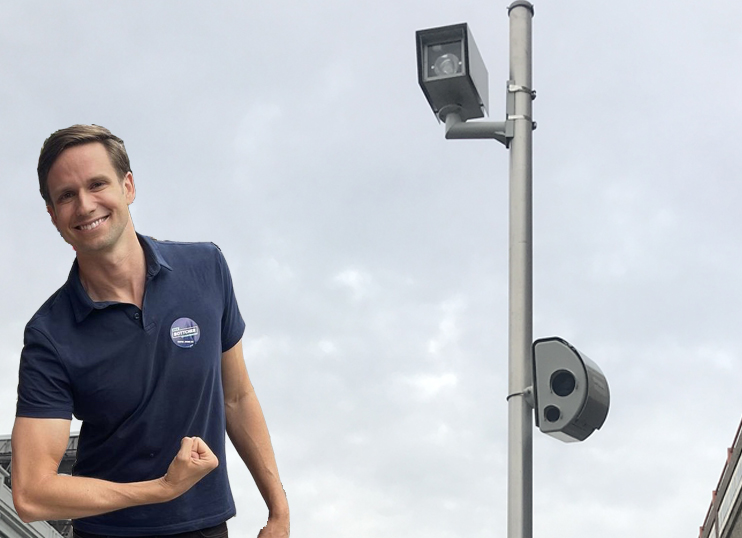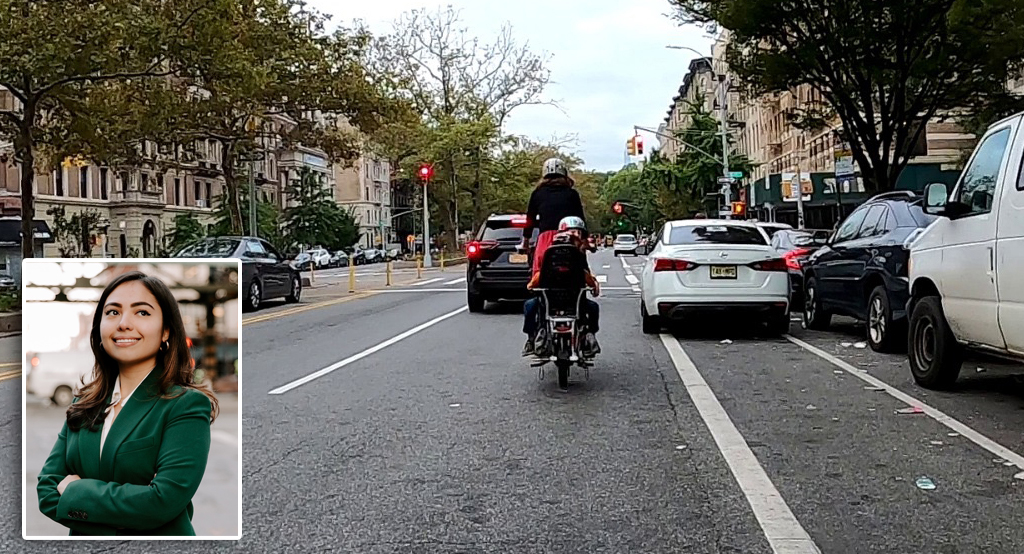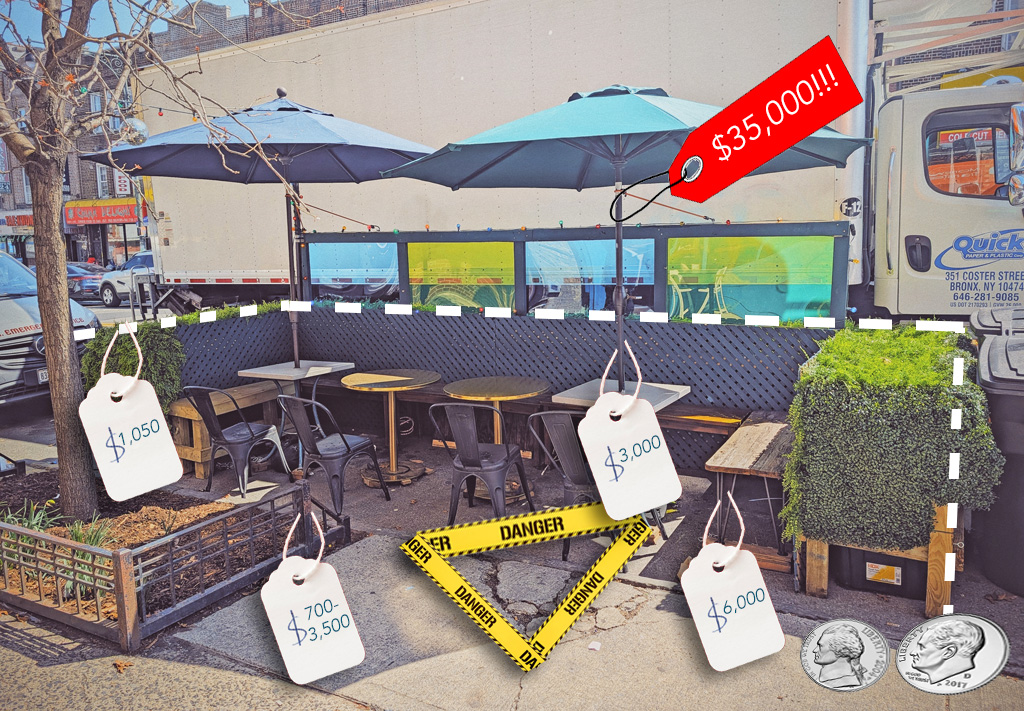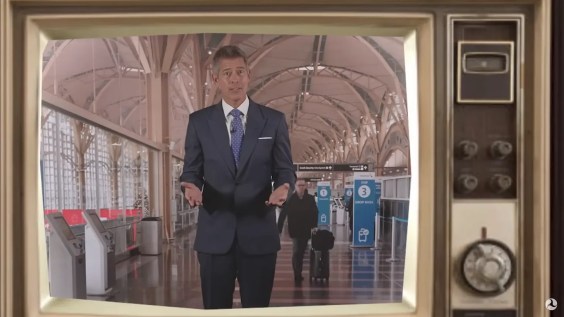Big Brother is watching ... but not squealing.
A Manhattan Council member wants to require the Department of Transportation to issue monthly reports detailing how many times a city speed or red-light camera was foiled because a driver had defaced or covered his or her plate.
Council Member Erik Bottcher's bill, which is expected to be submitted on Thursday, aims to build on existing, but scattershot, reporting that has attempted to pin down just how many cheaters are on the roads.
“Finally getting 24/7 speed cameras was an incredible win for our city, but we know that drivers are illegally concealing, obscuring, and defacing their license plates to continue to speed with impunity," Bottcher told Streetsblog. "What we don’t know is how many drivers are doing it, how many lives they’re endangering, and how much money they’re stealing. This is information that should be publicly available and I’m proud that my legislation will do just that.”
We sort of know how many drivers are doing it. Earlier this year, The City published a bombshell report that revealed that covered-up plates allowed drivers to evade camera tickets 1.5 million times between March 2020 and January 2022. The problem, the outlet revealed, has gotten decidedly worse as the city has ramped up its speed camera effort. Between January 2016 and mid-2019, roughly 1 percent of all drivers could not be identified from their plate, either because they had no plate or had covered or defaced it.
That number rose to about 4 percent in mid-2020, when the DOT expanded its speed cameras to more than 700 school zones. And the percentage of drivers with unreadable plates rose to 4.75 percent during the heart of the pandemic, when speeding increased as well.
The City obtained the information only through a Freedom of Information Law request, an onerous process that Bottcher aims to obviate by requiring the DOT to post a report of covered or unreadable plates on its website each month and submit those reports to the mayor and the Speaker of the Council as a single report by Jan. 31 of each year, he said.
"We in government rely on the people of New York City and their passion, expertise, and knowledge to help us both craft policies and understand whether those policies are working," Bottcher said. "Making this information easily and publicly available to both the City Council and all New Yorkers is an important piece of that."
Department of Transportation spokesman Vin Barone said, "We look forward to reviewing the legislation."
Transportation Alternatives is already certain it supports it.
“Our streets are more dangerous when drivers flout the law to escape accountability," said Elizabeth Adams, the group's senior director of Advocacy and Organizing. "Council Member Bottcher's bill will allow the city to see the scale of this illegal practice and help ensure that our automated enforcement programs are as strong as they can be."
And the keeper of the Placard Abuse account on Twitter reminded, "Open public data is always important for accountability."
The bill "would help the public understand the scale of the problem and would make it more likely that worsening trends will get noticed. The more people understanding just how much the culture of corruption is exposing us to avoidable dangers, the more seriously they will push their elected officials to fix it."






